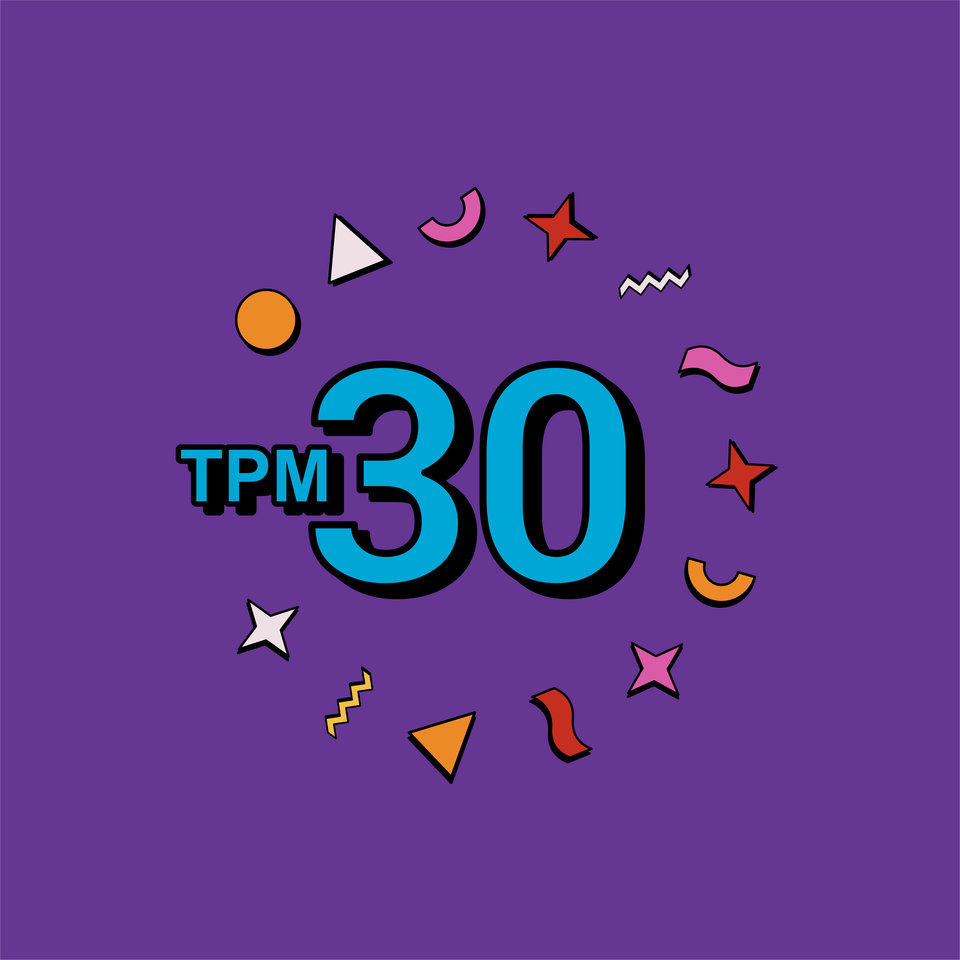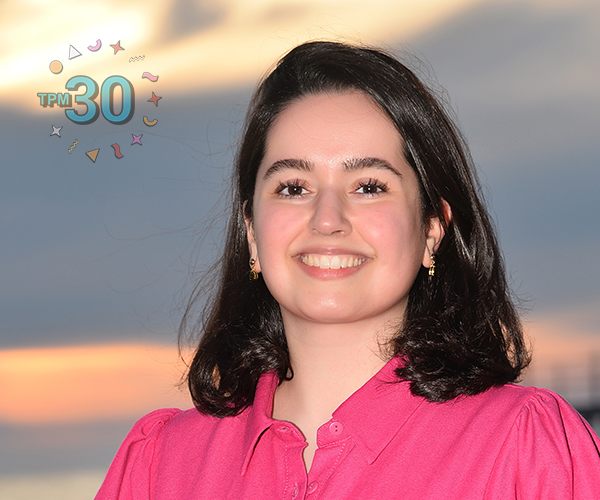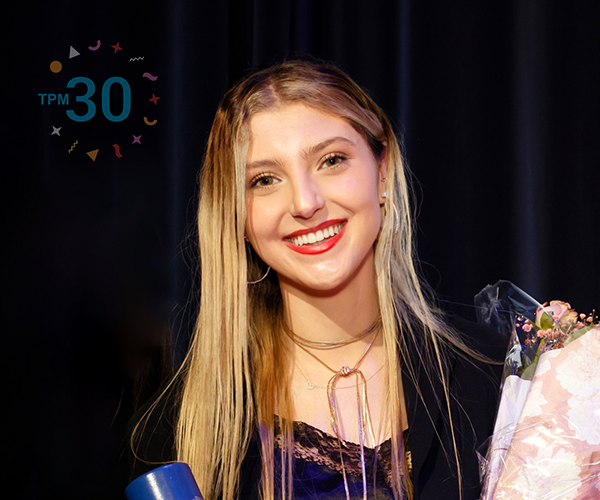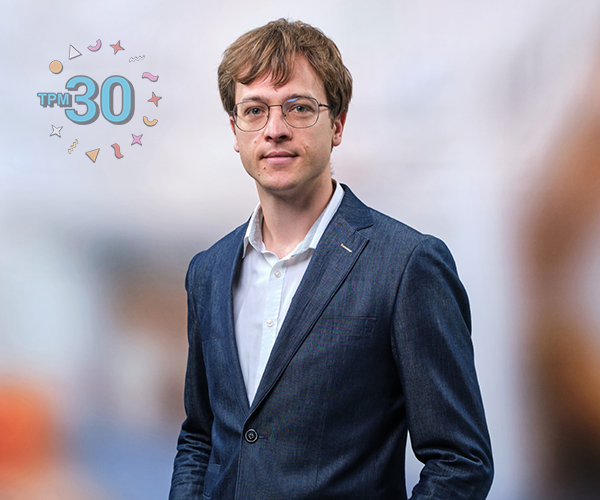TPM Portraits: Pieter Bots
When Technische Bestuurskunde was finally given the green light in 1991, the degree programme had to be developed pretty much from scratch. Pieter Bots, associate professor of Policy Analysis, took on this job together with Henk Sol, Wil Thissen and Simon Peerdeman. Thanks to a great boost of energy, team spirit and a lot of trial-and-error, TB gradually took shape. “We had to set up something that didn’t exist before.”
After studying Computer Science in Leiden, Pieter Bots ends up at TU Delft in 1985 for his PhD research. When, after his postdoc, his supervisor Henk Sol offers him an appointment as a lecturer in Policy Analysis for the programme Technische Bestuurskunde (Systems Engineering and Policy Analysis), which is then still to be designed, he does not have to think long. Bots: “Education has always been a passion of mine. In Leiden I already gave seminars as teaching assistant, and in Delft I had co-developed and taught courses that had to do with decision-making. I thought it was a wonderful opportunity to help shape a completely new curriculum.”
In his new position, Bots can use a number of his qualities. “I am good at translating abstract concepts into understandable language. I really enjoy explaining things. I am also a boundary spanner. This definitely comes in handy in a multidisciplinary context. I always have a tendency to break into a discussion between two people when I notice that they do not fully understand each other.”
Purchase service education
The degree programme Technische Bestuurskunde starts in 1992 with three technical domains: Transport, Information Technology, and Environment. Because the chairs for these domains did not yet exist at that time, Bots is responsible for the Environment domain. One of his tasks is to ensure the supply of education in this field. To do this, he has to ‘purchase’ service education from existing faculties, such as Applied Sciences and Civil Engineering.
According to Bots, the content of the courses that was needed had to be negotiated. “Among other things, I had to ensure that the lecturers in, for example, chemistry or thermodynamics would take into account the level of our students and the knowledge required for TB in their learning objectives. As a result, students received more tailor-made education and did not ‘drown’ in the mono-disciplinary student communities in other programmes.”
Start from scratch
Bots – together with Sol and Thissen – also has to set up the programme's own courses, such as Inleiding Technische Bestuurskunde (Introduction to Systems Engineering and Policy Analysis). “We had to make sure that the teaching material did justice to our ideas. That was fun and educational, but sometimes also difficult. We had to set up something that did not exist before. But the enthusiasm, the mutual collegiality and team spirit created an enormous drive.”
In the first years, Bots sometimes has to race huffing and puffing against time. “We were only a week ahead of the lectures as we wrote our teaching materials. For each lecture I made a number of transparencies for the overhead projector. Those were A4 size, and for each transparency I wrote a companion page with definitions and examples for clarification. At the start of the lecture, I then handed out sets of photocopies of these annotated transparencies to the students. Sometimes it was all so last minute that the paper was still warm from the copier.”
Lots of trial and error
In the beginning it is mainly about trying out lots of things, says Bots. Some attempts are more successful than others. “In the third year I had developed a simulation game for students, in which they had to learn to understand how a company's business information processing system works. For this I had put together an entire database of a fictitious company and arranged for us to use Exact software.”
The amount of work he puts into it is just out of proportion to the yield. “Students liked it, but ultimately didn't learn much from it. Another simulation game that I developed for strategic project management in the fourth year turned out well. In the end, that was part of the training for ten years. So keep trying. I also developed a modeling relay about ten years ago that is still used today.”
Involve students as much as possible
When developing a new curriculum, good feedback is crucial. That's why the lecturers listen a lot to students' input, says Bots. “We urged students to let us know immediately if they thought we could do something better or differently. I still use that short feedback loop in education.”
One of the student contributions that Bots remembers well relates to drawing up the examination regulations. “One student, Paul te Bokkel, was very sharp when it came to formulating rules. He would scrutinize every article down to the comma. That was very useful for us. Our credo at the time was: if Paul approves it, then it is sound.”
Bots also remembers how close-knit the first group of students was. “In the first years, we always went out for a few days at the beginning of the academic year. We would have social activities during the weekend, then start with a lecture on Monday and subsequently play a policy simulation game. Afterwards I knew everyone by their first name. That was still possible with eighty students. But after six years I had to give up because we no longer had these long weekends, and also because student numbers increased.”
Tenor in the TPM Cellar Choir
Besides lecturing and discussing the degree programme, Bots also makes his voice heard in another way. He is one of the founders of the TPM Cellar Choir. Bots: “In the second year of TB, it became a tradition to sing with a few colleagues at the Christmas lunch. Just some carols as a nice addition to the speeches.”
When the enthusiasm for the singing club increases, one of the singers suggests making it a weekly affair. Bots: “Since then, we just break out on Wednesday afternoons to sing a few songs together. Because we rehearse in the basement of the TPM building, we gave ourselves the name Kelderkoor (Cellar Choir). We still perform occasionally, at Christmas or Parents' Day or when someone leaves TPM.”
Name giver of study association Curius
Bots can also be credited with being the ‘name giver’ of the study association. “After its foundation, the founding board of the association was looking for a suitable name and had organised a competition. I felt called to participate and drew up a list of requirements for myself. It had to be a historical figure, preferably a public administrator. It also had to read well.”
When leafing through the encyclopedia, the C already hits the mark: Curius. Bots: “Curius was a Roman consul who was involved in infrastructure. Very appropriate for our programme. You can also pronounce Curius as curious, which of course refers to the curious attitude of students. So I came up with a nice story. Very nice and honourable that they ended up choosing my find.”
Proud of students and development of TPM
Bots sees the current TPM as a success of which he is one of many parents. Every year he looks with pride at 'his' students who graduate. “Especially when I see that alumni move on to good job positions, that gives a lot of satisfaction. It somehow feels like I can claim a very small part of that success.”
Bots also likes to see how the faculty has developed over time. “The faculty has often shown to be an agile organisation. Especially when the degree programme was again under discussion after a personnel change in the university’s Executive Board. But we never lost our identity, despite the enormous growth we have experienced. Where we once started with just the four of us, we are now with four hundred people.”
At the same time, growth can also be a threat, Bots finally warns. “Where we first trained more generalists, there are now more different sections with a specialisation. We must ensure that we maintain the multidisciplinary character within the faculty. That is what makes us unique.”
TPM Portraits
In the "TPM Portraits" series, we speak to TPM members right across the faculty. In celebration of TPM's 30th anniversary we have had personal conversations with people who are ( or have been) all part of the TPM community in their own way. What have they experienced within the faculty? What is TPM to them today? And how do they see the future? A new portrait appears every two weeks.






